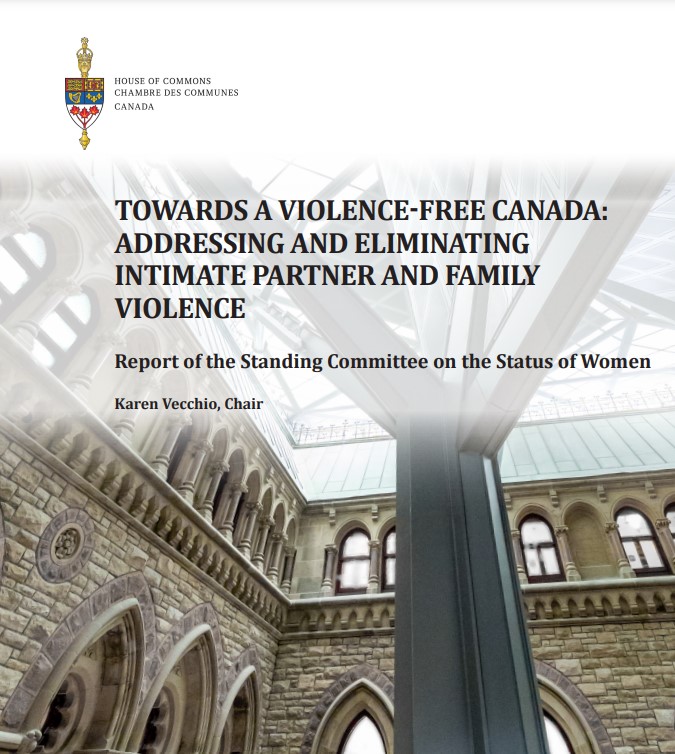 On June 17th, 2022, the Standing Committee on the Status of Women tabled its report Towards a Violence-Free Canada: Addressing and Eliminating Intimate Partner and Family Violence. This report makes public the committee's findings and proposes 28 recommendations, after hearing from 74 witnesses and receiving 137 briefs from organizations and Canadians across the country.
On June 17th, 2022, the Standing Committee on the Status of Women tabled its report Towards a Violence-Free Canada: Addressing and Eliminating Intimate Partner and Family Violence. This report makes public the committee's findings and proposes 28 recommendations, after hearing from 74 witnesses and receiving 137 briefs from organizations and Canadians across the country.
Click on the image to download the report. You can also access it on the committee's website at https://www.ourcommons.ca/Committees/en/FEWO
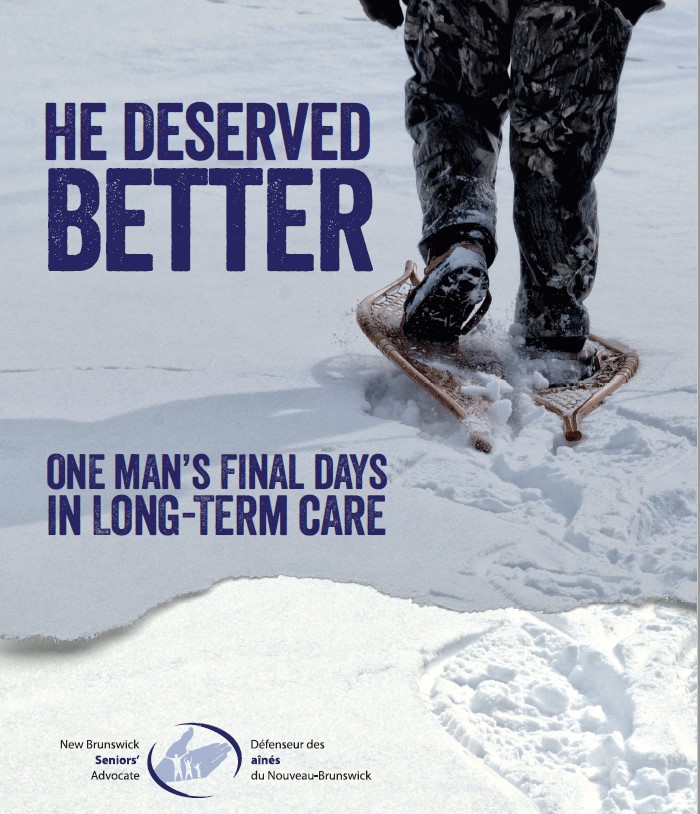 He Deserved Better - One Man’s Final Days in Long-Term Care
He Deserved Better - One Man’s Final Days in Long-Term Care
"This report follows an investigation into the death of a 91-year-old nursing home resident due to complications arising from a broken hip caused by assault from another resident. (...) This report was not prepared in an attempt to find fault or to assign blame, but rather it is written to identify failings or gaps in a very complex system serving our province’s older adult population. This report is concerned with institutional capacity, processes, and monitoring to ensure the safety of residents. All recommendations are directed to government."
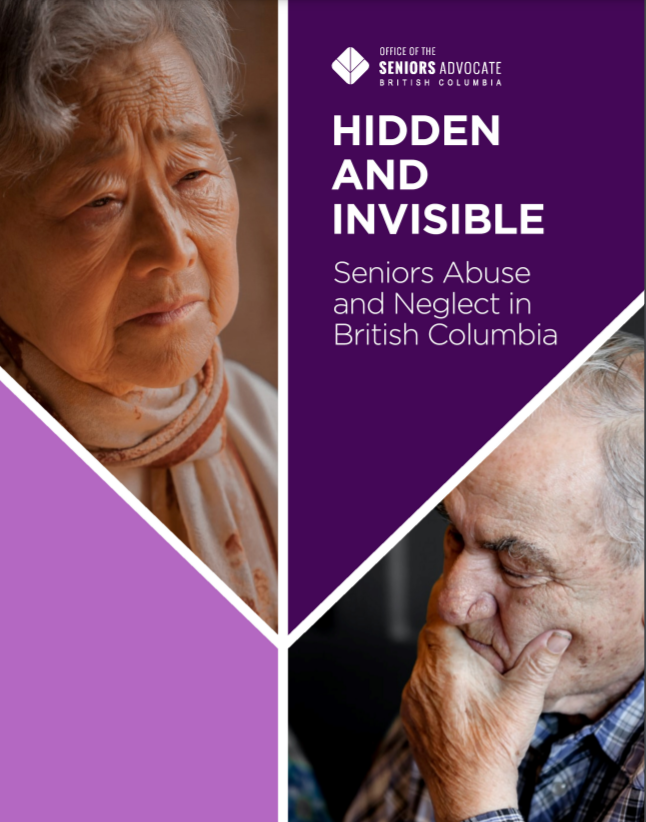 In this report, BC Seniors Advocate Isobel Mackenzie details the results of a systemic review of seniors’ abuse and neglect in British Columbia. The review examined the protections that exist for B.C. seniors, the prevalence of seniors’ abuse and neglect, the method of reporting abuse and neglect, and the response to reports of seniors’ abuse and neglect. The report included reviewing five years of existing data, consulting with 144 stakeholders in 25 communities throughout B.C., and surveying over 1500 British Columbians.
In this report, BC Seniors Advocate Isobel Mackenzie details the results of a systemic review of seniors’ abuse and neglect in British Columbia. The review examined the protections that exist for B.C. seniors, the prevalence of seniors’ abuse and neglect, the method of reporting abuse and neglect, and the response to reports of seniors’ abuse and neglect. The report included reviewing five years of existing data, consulting with 144 stakeholders in 25 communities throughout B.C., and surveying over 1500 British Columbians.
The report includes five recommendations:
- Establish provincial standards of practice, policies, and front-line training to respond to seniors’ abuse and neglect
- Create province-wide public awareness initiatives and training on seniors’ abuse and neglect
- Develop a central, single point of contact to report calls of concern of seniors’ abuse and neglect
- Ensure consistent data collection, methods, and definitions to record, track and monitor abuse and neglect cases
- Undertake a full comprehensive review of the Adult Guardianship Act
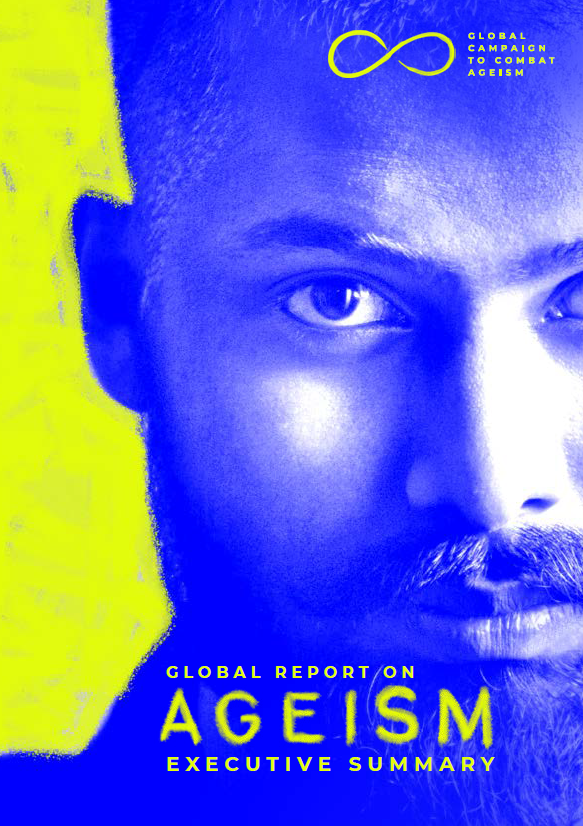 The Global report on ageism outlines a framework for action to reduce ageism including specific recommendations for different actors (e.g. government, UN agencies, civil society organizations, private sector). It brings together the best available evidence on the nature and magnitude of ageism, its determinants and its impact. It outlines what strategies work to prevent and counter ageism, identifies gaps and proposes future lines of research to improve our understanding of ageism.
The Global report on ageism outlines a framework for action to reduce ageism including specific recommendations for different actors (e.g. government, UN agencies, civil society organizations, private sector). It brings together the best available evidence on the nature and magnitude of ageism, its determinants and its impact. It outlines what strategies work to prevent and counter ageism, identifies gaps and proposes future lines of research to improve our understanding of ageism.
Read the full report here
Source: World Health Organization
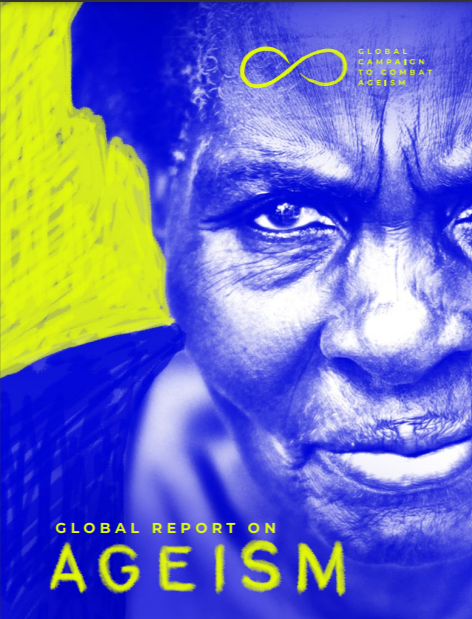 ''Age is one of the first things we notice about other people.
''Age is one of the first things we notice about other people.
Ageism arises when age is used to categorize and divide people in ways that lead to harm, disadvantage and injustice and erode solidarity across generations. Ageism takes on different forms across the life course. A teenager might, for instance, be ridiculed for starting a political movement; both older and younger people might be denied a job because of their age; or an older person might be accused of witchcraft and driven out of their home and village.
Ageism damages our health and well-being and is a major barrier to enacting effective policies and taking action on healthy ageing, as recognized by World Health Organization (WHO) Member States in the Global strategy and action plan on ageing and health and through the Decade of Healthy Ageing: 2021–2030. In response, WHO was asked to start, with partners, a global campaign to combat ageism.
The Global report on ageism was developed for the campaign by WHO, Office of the High Commissioner for Human Rights, the United Nations (UN) Department of Economic and Social Affairs and the United Nations Population Fund. It is directed at policy-makers, practitioners, researchers, development agencies and members of the private sector and civil society. This report, after defining the nature of ageism, summarizes the best evidence about the scale, the impacts and the determinants of ageism and the most effective strategies to reduce it. It concludes with three recommendations for action, informed by the evidence, to create a world for all ages.''
Source: World Health Organization
Page 4 of 20

















